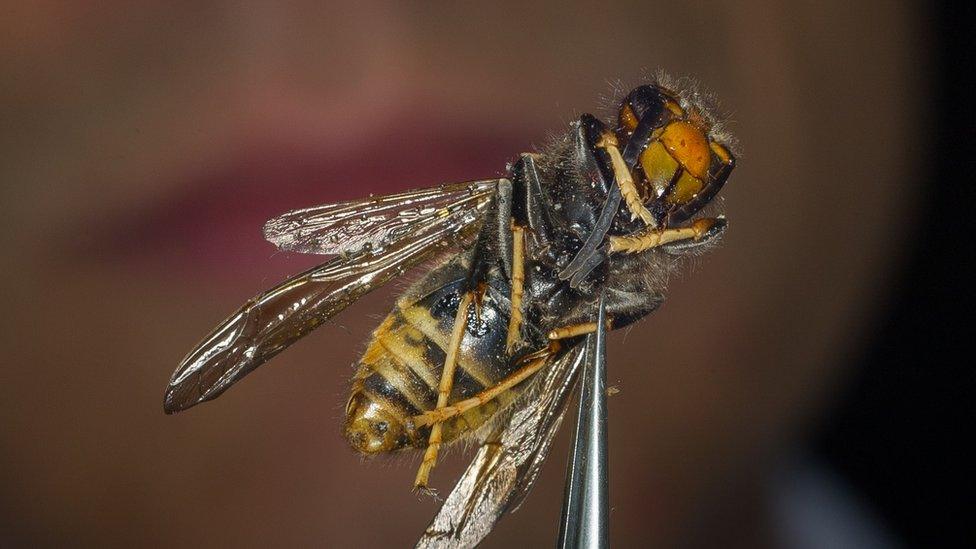Asian hornet 'more than likely' established in Jersey
- Published
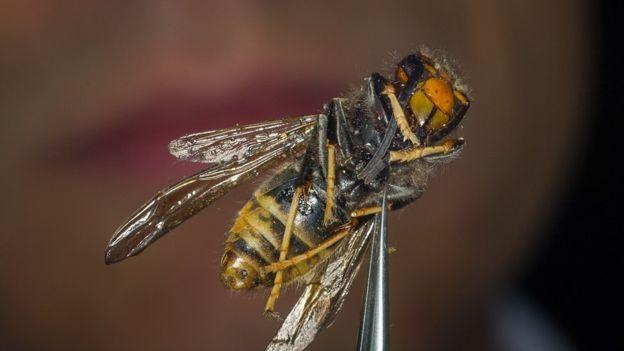
The Asian hornet is slightly smaller than the native European hornet
An invasive hornet that kills honey bees is likely to have now settled in Jersey, according to an expert.
A third Asian hornet nest was destroyed on Wednesday after being discovered in the east of the island.
President of Jersey Beekeepers' Association Dr Tim du Feu said widespread sightings meant it was "more than likely" the hornets were now established.
Asian hornets were first seen in the island in August last year.
More on the hornet discovery and the latest Jersey and Guernsey news.
'Here to stay'
Nests have been reported across the UK. The most recent Jersey nest was found in a garage wall near Rozel Bay on 19 July.
A previous discovery was made nearby in the parish of St Martin on 26 June, but there have been sightings around the island, according to Mr du Feu.
"There's a more general distribution, which infers they are here to stay," he said.
"It's more than likely that they are establishing residence."
The Jersey Beekeepers' Association confirmed there had been 20 Asian hornet sightings so far this year, spread across the island.
It believes this suggests the hornets have either moved before or after hibernation, or the insects have been in the island prior to the first reported sighting in 2016.
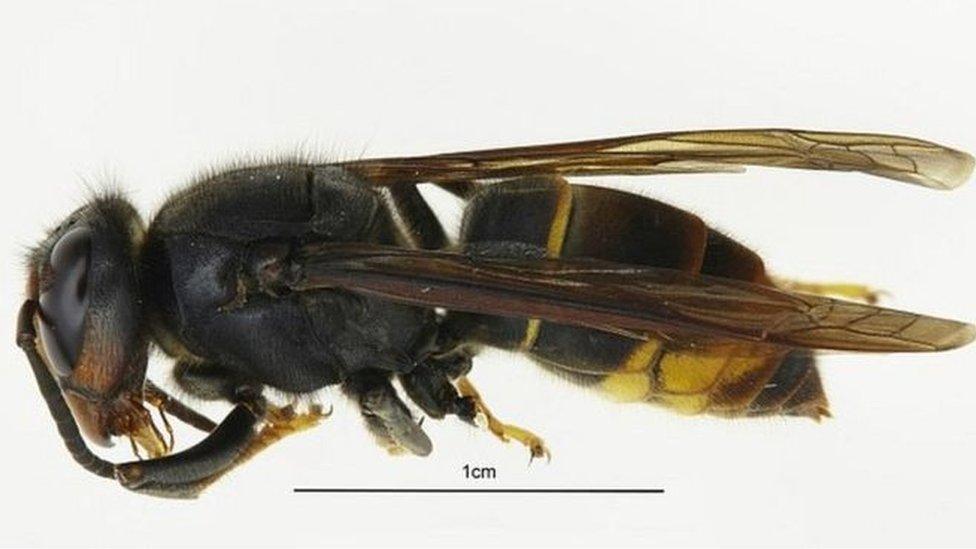
Asian hornets are said to be able to kill up to 50 bees a day
Principle ecologist at the Department for the Environment John Pinel said they had destroyed the primary nest, discovered on Wednesday.
The department is yet to discover a secondary nest, which he said would indicate the hornets are firmly established in the island.
"The danger will be if there's secondary nests created that we don't discover, and there could be a large number of queens released which could then go on to build new nests next year," Mr Pinel said.
"It is possible that a couple of queens were introduced to Jersey last year through the import of produce for instance. It's also possible that they've flown across and taken up residence here.
"At the moment I think we're probably still on top of things and there is a chance that we can stay on top of things if everybody is diligent and keeps their eyes open for these things."
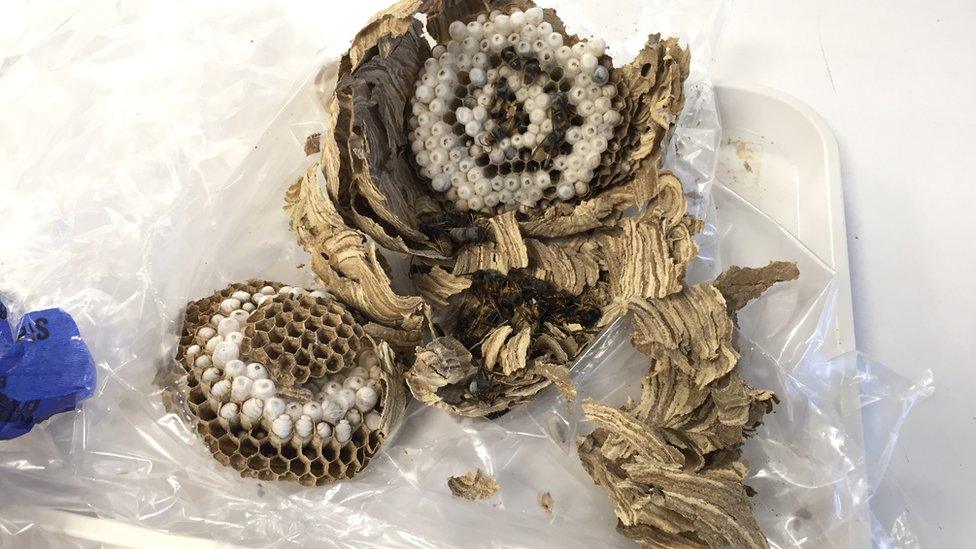
This Jersey Asian hornet nest was frozen for study in June
The first sightings of Asian hornets in the Channel Islands were in Alderney in July last year, which Mr Pinel suggested could have been a larger established secondary nest.
The department said Asian hornets were no more dangerous to humans than native hornets, but advised caution if a person was to encounter a nest, which they say are usually in high trees, but can sometimes be found in outbuildings or sheds.
The States is asking for any possible nests to be reported to the Department for the Environment.

Identifying an Asian hornet (Vespa velutina)
Vespa velutina queens are up to 3cm (1.2in) in length; workers up to 25mm (1in)
Entirely dark brown or black velvety body, bordered with a fine yellow band
Only one band on the abdomen, fourth abdominal segment almost entirely yellow/orange
Legs brown with yellow ends
Head black with an orange-yellow face
Source: National Bee Unit

- Published6 July 2017
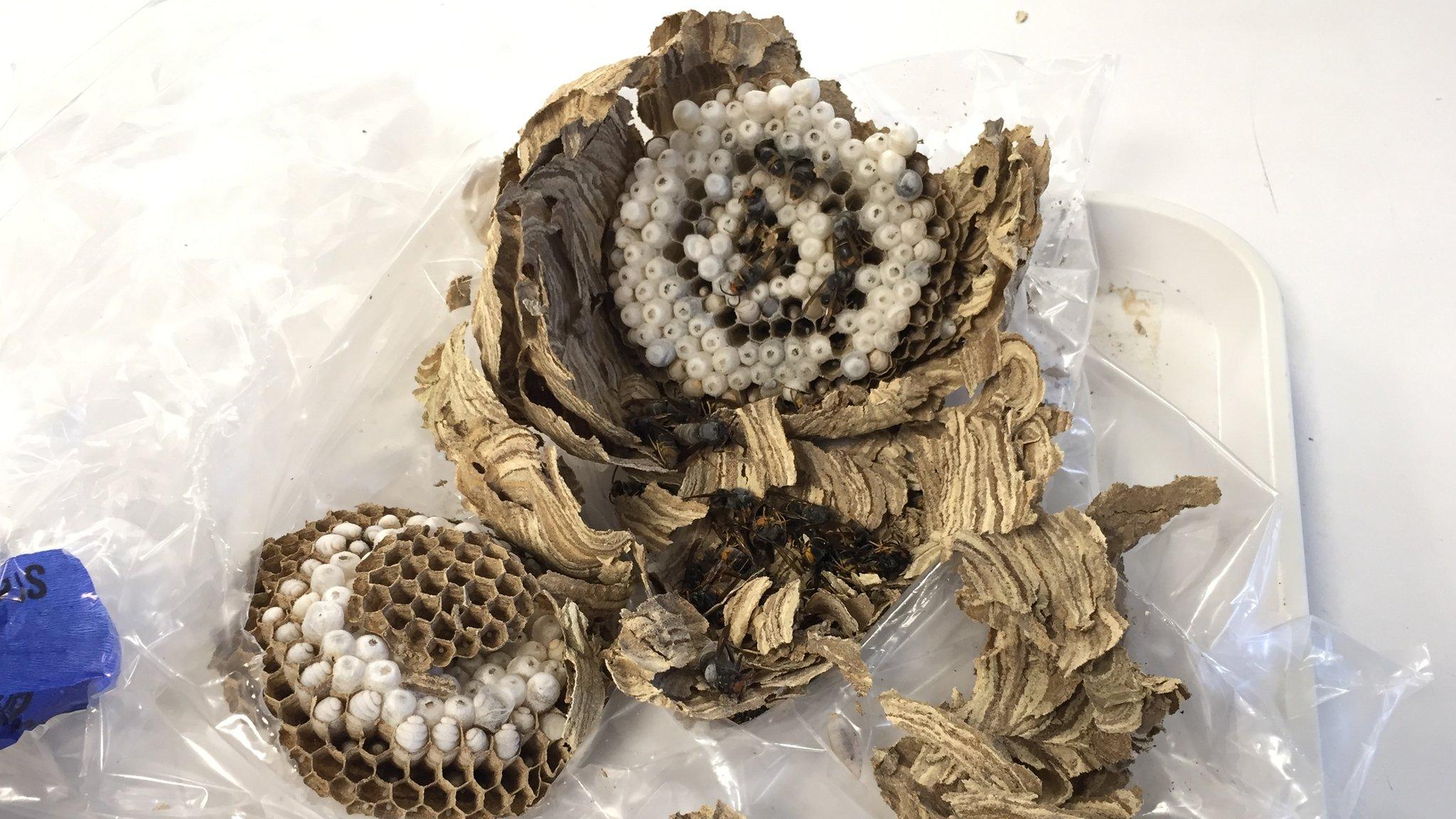
- Published17 August 2016
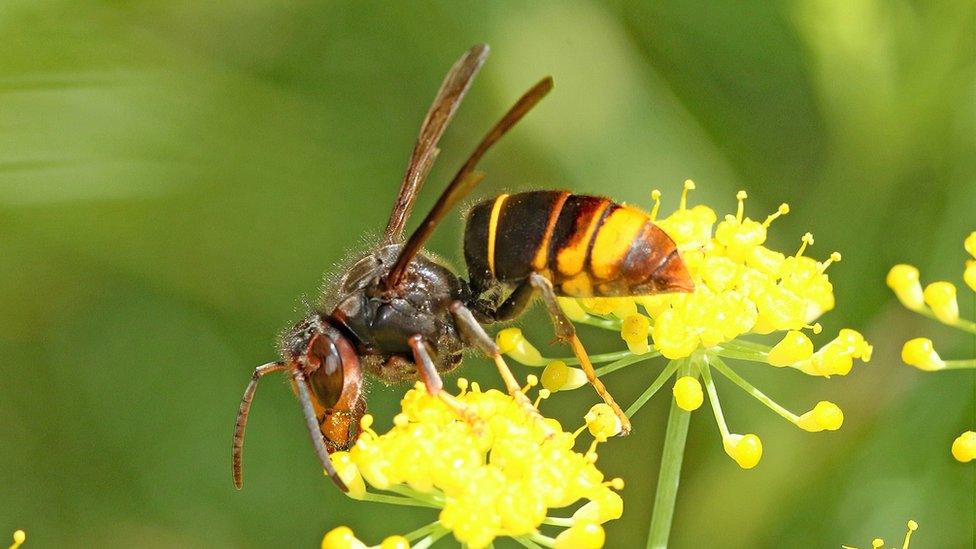
- Published4 November 2016
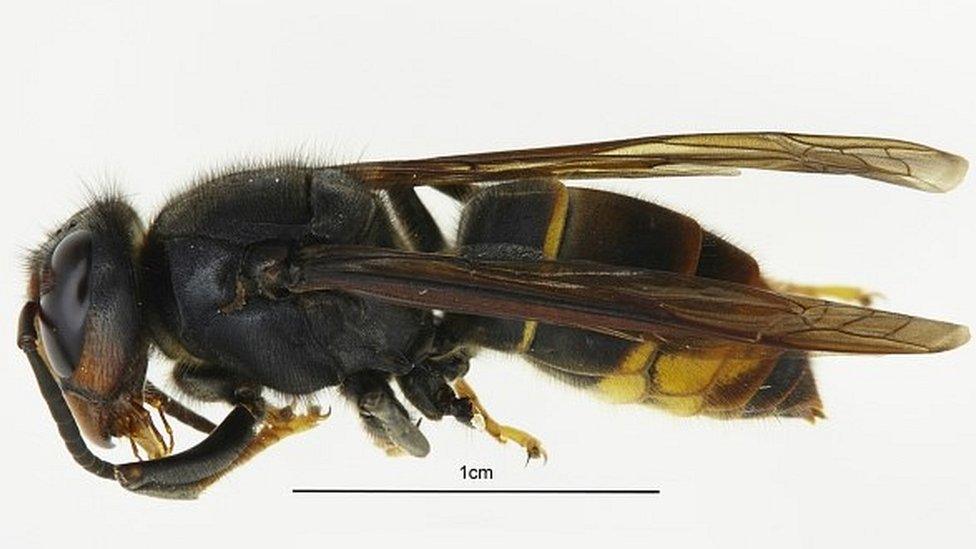
- Published22 July 2016
